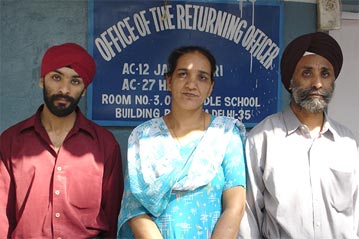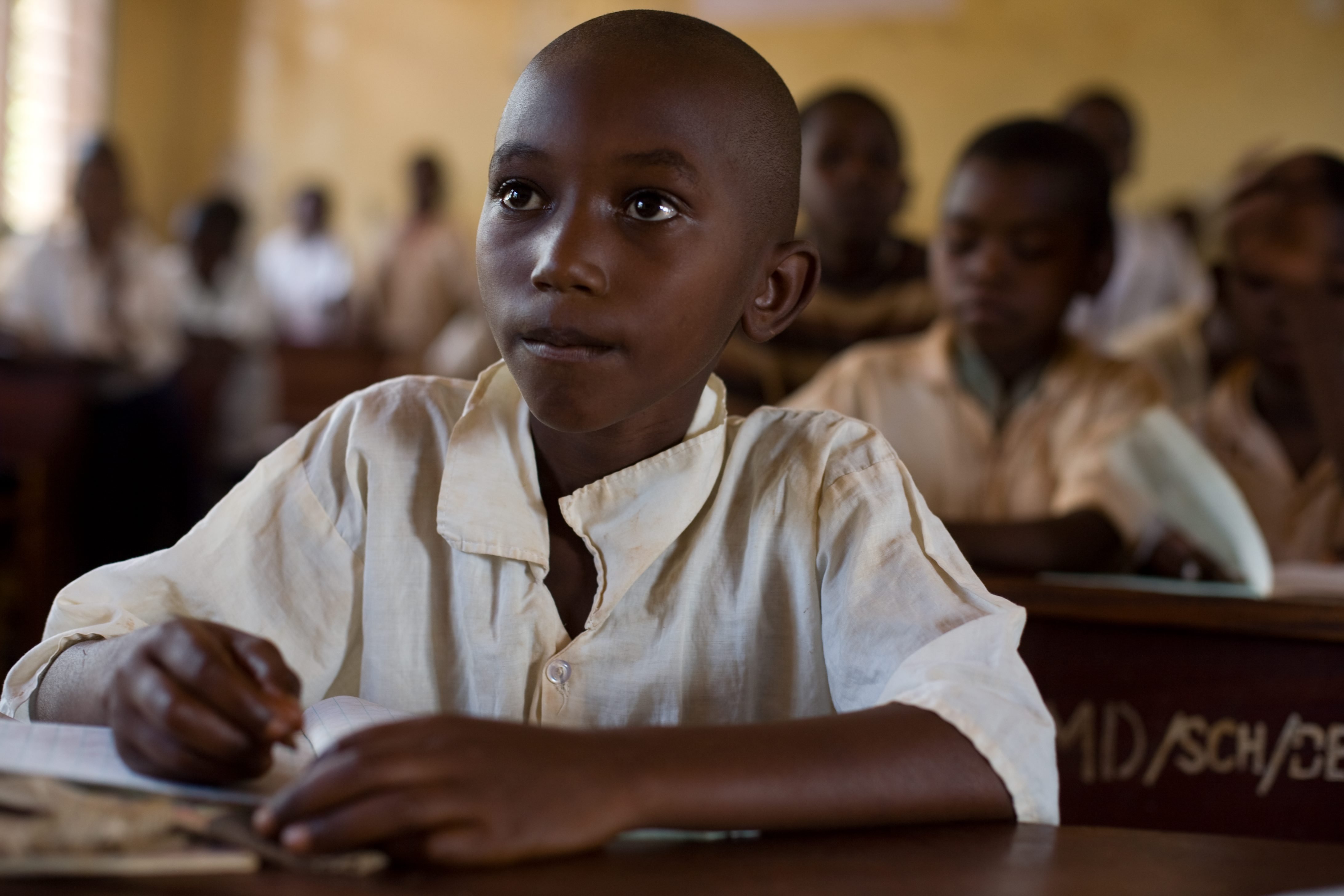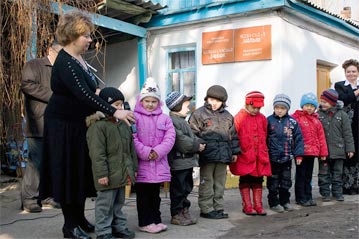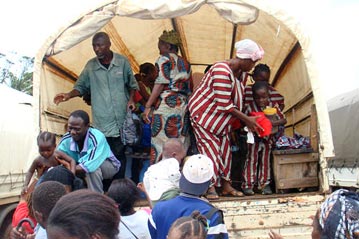Afghan refugees in India become Indian, at last
Afghan refugees in India become Indian, at last

NEW DELHI, India, 10 March, (UNHCR) - "I, Meet Singh, do solemnly affirm that I will bear true faith and allegiance to the Constitution of India as by law established and that I will faithfully observe the laws of India and fulfil my duties as a citizen of India." His voice steady and firm, 44-year-old Meet Singh took the oath of citizenship in February 2006, 14 years after he had fled Kabul along with his wife Balwant Kaur and his 22-year-old son, Surjeet.
"We will apply for our Indian passports now," said Meet.
"I hadn't thought of making any special kheer [a sweet dish], but I will now. Please come and celebrate with us," said his wife, Balwant.
It's been a long wait for this Afghan-Sikh family, who fled from Kabul in 1992 amidst bombs and terror. Travelling on foot for 10 days in a group of 50 people, they had left the Afghan capital with nothing but hope for the future.
"We were very sad when we left, but we had no choice," said Meet. Their shops had been raided, and their friends and family killed. During their journey, which took them to the Afghan city of Jalalabad, then Lahore in Pakistan before reaching the Indian city of Amritsar, they took refuge in gurudwaras (Sikh temples).
Today, Meet Singh runs a fairly successful business, selling clothes in a south Delhi market. His son, Surjeet, works with him and the family live a comfortable life in a city that was once alien to them all.
Another Afghan Refugee, Waz Devi, 47, was naturalised along with her daughters in December 2005. "I am very happy," she says. "I have no desire to go back to Kabul. What do I have there? We are all here." Recounting her flight, she says it was terrifying, fleeing the violence with 15 other people in a truck. "It was very difficult initially in Delhi as well. We didn't get much help."
In the 15 years that the family has lived here, they have prospered. Her youngest daughter, Ranjeeta, who is 16 years old, is waiting to turn 18 so that she can begin the process of applying. "I like it here. Most of my friends are Indian." And like most Indian girls her age, her favourite Bollywood star is Salman Khan.
So far, 13 Afghan refugees, 12 of whom are of Hindu and Sikh faiths, have become naturalised Indian citizens. This has raised hopes amongst the other 8,500 Afghan refugees of Hindu and Sikh faiths who have been resident in India for more than 12 years, the minimum number of years residency required needed to apply. Some have already taken the first step, with 57 applications received in February 2006, the highest number to date for any individual month.
UNHCR works closely with an implementing partner, the Socio-Legal Information Centre (SLIC) which actively counsels those eligible for naturalisation, helps with filling in the forms and follows up on cases in the process. "SLIC helped us a lot and even came with us when we took the oath," says Paramjit Kaur, 41, who along with Tajbib Kaur, 45, also took the oath of allegiance in February 2006.
"We were so happy when we got the news of Paramjit Kaur and Tajbib Kaur taking the oath. These were our first successes, and naturally special. It was a big day for us. One feels that one's labour is not lost," says Ragini Trakroo, of the four-strong naturalisation team at SLIC. With more cases trickling through, the team is optimistic that this is the beginning of better things to come. Although the figures remain quite daunting, with a total number of 3,531 people interested in naturalisation, only 18 cases have so far reached the final stage.
For many becoming an Indian citizen brings a sense of identity and the chance of greater economic prosperity. As refugees, they do not have the right to work in India. As citizens, they will be eligible for government grants and loans to set up their own business. They will also receive documents enabling them to travel.
For many Afghan refugees of the Hindu and Sikh faiths, naturalisation is also a logical step. Familiar with language and culture, these refugees blend in with the local population, not least because they share the same religion as many other Indians. For Sikhs, the Golden Temple at Amritsar is a holy shrine. Many make that pilgrimage and feel that India is a natural home. "We are among our own people here," says Tajbib Kaur.
"In 1992, I had no idea what we would do, how we would live, what India would be like. Now, I am a citizen of India. I like the people here, I like the culture. I feel fine about no longer being an Afghan," says Meet Singh.
As soon as they get their passports, the family intends to travel. "I want to see my country again, just once," says Balwant Kaur.
By Nayana Bose in New Delhi, India








